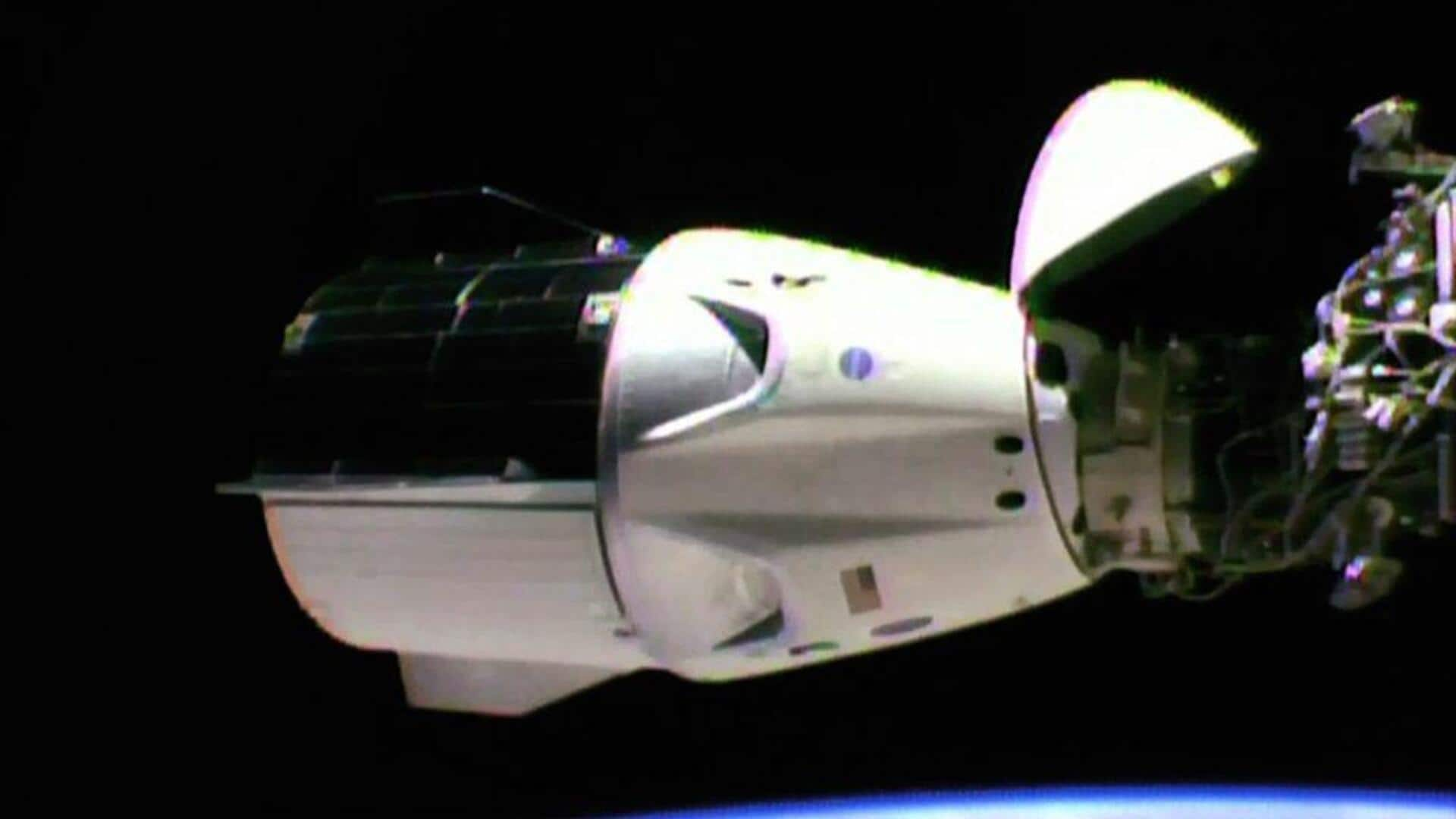
SpaceX Dragon capsule docks at ISS to rescue Sunita Williams
What's the story
SpaceX's Dragon capsule has made a successful docking at the International Space Station (ISS), marking a significant step in the mission to rescue astronauts Barry Wilmore and Sunita Williams stranded there.
The docking took place earlier today.
The capsule was launched from Cape Canaveral, Florida on Saturday carrying NASA astronaut Nick Hague and Russian cosmonaut Alexander Gorbunov.
Stranded astronauts
Astronauts stranded due to Starliner capsule malfunction
Wilmore and Williams have been stuck on the ISS since June.
They were on an eight-day mission aboard Boeing's new Starliner capsule, but have been forced to remain there until February next year due to several issues with the spacecraft.
The Dragon capsule has been fitted with two empty seats for their ride back to Earth, which is set for February.
Twitter Post
Docking confirmed by ISS
The @SpaceX Dragon spacecraft, with #Crew9 aboard, docked to the space station’s Harmony module at 5:30pm ET today. The @Commercial_Crew duo will enter the orbiting lab
— International Space Station (@Space_Station) September 29, 2024soon. More… https://t.co/LhbFjAUMPQhttps://t.co/aSTE1gPo3y
Crew change
Dragon capsule's journey and crew change at ISS
The Dragon capsule's launch was supposed to happen on Thursday, but Hurricane Helene had other plans.
The docking went down when the ISS was cruising at 426km above Botswana, in southern Africa.
Once they arrived, Hague and Gorbunov were all smiles and ready for photos with the rest of the crew.
They'll be settling into the space station's team before taking Wilmore and Williams back home to Earth in February.
Twitter Post
The official welcome
The official welcome!
— NASA's Johnson Space Center (@NASA_Johnson) September 29, 2024
The Expedition 72 crew welcomed #Crew9, @NASAAstronauts Nick Hague the Crew 9 commander and cosmonaut Aleksandr Gorbunov thecrew 9 mission specialist, after their flight aboard the @SpaceX Dragon spacecraft. pic.twitter.com/kY3ydy5Czr
Technical glitches
Boeing's Starliner capsule faced multiple issues
The inaugural Starliner flight, which launched on June 5, marked the capsule's first test run with real astronauts and Boeing's first-ever attempt to ferry astronauts to the ISS.
Unfortunately, things didn't go as planned; it faced multiple issues, like helium leaks from its propulsion system and thruster problems.
After months of digging into the issues by engineers at Boeing and NASA, it was concluded in late August that it wouldn't be safe for Wilmore and Williams to return aboard Starliner.
Space contracts
NASA's reliance on SpaceX and Boeing for ISS missions
Since wrapping up its space shuttle program back in 2011, NASA has leaned on Russia's Soyuz craft for its trips to and from the ISS.
To break free from this reliance, the agency handed out contracts totaling $4.2 billion and $2.6 billion to Boeing and SpaceX, respectively, in 2014.
Fast forward to 2020, SpaceX made history by becoming the first private company to send astronauts to the ISS, marking a major leap for commercial space travel.